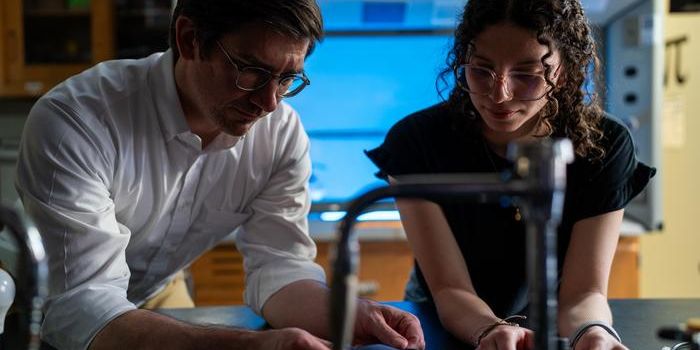Radioactive Antibody Illuminates Fungal Lung Infections
An international team of scientists has pioneered a new procedure to diagnose lung disease caused by common mold. In immunocompromised individuals, the condition known as pulmonary aspergillosis can be life-threatening. With this groundbreaking new technology, physicians can detect the fungal disease faster, more precisely, and in a non-invasive manner for the first time.
We constantly breathe in Aspergillus’ air-borne spores, an abundant environmental mold commonly found in soil and decomposing plant material. For healthy individuals, the immune system destroys these spores before they can cause problems.
However, the fungus is an opportunistic pathogen in those with weakened immune systems, such as those battling underlying health conditions or chemotherapy patients. These individuals are at high risk of developing invasive pulmonary aspergillosis, an infection that can progress rapidly and is frequently fatal. This infection has posed a particular problem for COVID-19 patients in ICU—around a third of them end up developing pulmonary aspergillosis.
Positively diagnosing the disease takes a toll on patients. The current diagnostic standard is a highly invasive technique wherein fluid is injected into the lungs via the nose, and this fluid is then tested for the presence of spores.
Researchers at the University of Exeter have developed the next generation of aspergillosis diagnostics: a humanized Aspergillus-specific monoclonal antibody linked to a radiotracer, known as JF5. This antibody is administered into the bloodstream and targets the Aspergillus. It can be imaged using 3-dimensional microscopy techniques. This technique also allows physicians to monitor the performance of front-line antifungal drugs after a positive diagnosis.
This highly innovative and ground-breaking diagnostic technology is a step-change in the way we diagnose this devastating disease of immunocompromised patients, eliminating our current reliance on unpleasant invasive procedures," said Chris Thornton, the research lead.
While JF5 was validated in animal models, the researchers are confident that it will perform effectively in humans. The team is planning on conducting clinical trials to demonstrate JF5’s full clinical potential before commercializing the technology.
Sources: News Medical via University of Exeter, Nature Communications.









